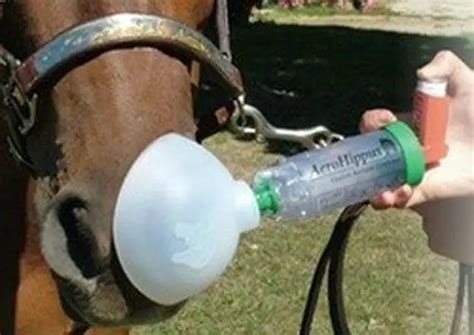How Long Can A Horse Live With Copd
Ronan Farrow
Apr 05, 2025 · 3 min read

Table of Contents
How Long Can a Horse Live with COPD?
Equine Chronic Obstructive Pulmonary Disease (COPD), also known as recurrent airway obstruction (RAO) or heaves, is a debilitating respiratory condition affecting horses. Understanding its prognosis is crucial for horse owners. While there's no single answer to "how long can a horse live with COPD?", we can explore factors influencing lifespan and management strategies for improved quality of life.
Factors Affecting Lifespan with COPD
Several factors influence how long a horse with COPD can live:
1. Severity of the Disease:
- Early diagnosis and intervention: Horses diagnosed early and managed effectively can live relatively normal lives for many years. Mild cases might show minimal impact on lifespan.
- Disease progression: Severe, untreated COPD can significantly shorten a horse's lifespan. Progressive lung damage can lead to respiratory failure.
2. Management and Treatment:
- Environmental control: Minimizing exposure to dust, mold, and allergens is paramount. Proper stable management, including regular cleaning and appropriate bedding, plays a vital role in slowing disease progression.
- Medication: Bronchodilators, corticosteroids, and other medications can help manage symptoms and improve respiratory function, thus extending life expectancy.
- Nutritional support: Maintaining optimal body condition is essential. A balanced diet can help support the respiratory system and overall health.
3. Individual Horse Factors:
- Age at diagnosis: Younger horses generally have a better prognosis than older horses.
- Underlying health conditions: Pre-existing conditions can complicate COPD management and influence lifespan.
- Individual response to treatment: Some horses respond well to treatment, while others may have a more challenging course.
Improving Quality of Life for Horses with COPD
Even with a chronic condition like COPD, maintaining a good quality of life for your horse is achievable. Focus on:
1. Symptom Management:
- Regular veterinary check-ups: Monitoring respiratory function and adjusting treatment as needed is essential.
- Consistent medication administration: Following veterinary instructions carefully ensures optimal symptom control.
- Environmental adjustments: Creating a clean and well-ventilated environment is crucial for reducing respiratory irritation.
2. Exercise and Activity:
- Controlled exercise: Moderate exercise can be beneficial for maintaining muscle mass and overall health, but it should be carefully monitored and adjusted based on the horse's respiratory capacity.
- Avoid strenuous activity: Overexertion can exacerbate respiratory symptoms and worsen the condition.
3. Nutritional Considerations:
- High-quality forage: Providing good quality hay that is low in dust and mold is essential. Soaking hay can also help reduce the dust content.
- Supplements: Certain supplements, such as antioxidants, may offer additional support for the respiratory system. Always consult your veterinarian before adding supplements to your horse's diet.
Conclusion: A Holistic Approach
The lifespan of a horse with COPD is highly variable. However, through proactive management, including early diagnosis, consistent treatment, environmental control, and careful monitoring, horse owners can significantly improve their horse's quality of life and potentially extend their lifespan. A holistic approach that addresses both the medical and lifestyle aspects of the condition is key to achieving the best possible outcome. Always consult with your veterinarian for personalized advice and treatment plans.
Featured Posts
Also read the following articles
| Article Title | Date |
|---|---|
| How Late Can You Overseed In The Fall | Apr 05, 2025 |
| How Long Do Lip Filler Bumps Last | Apr 05, 2025 |
| How Long Does 2500 Puffs Last | Apr 05, 2025 |
| How Long Do Frozen Rats Last | Apr 05, 2025 |
| How Long Does A Lace Wig Stay On | Apr 05, 2025 |
Latest Posts
-
How Long Does Adam And Eve Shipping Take
Apr 05, 2025
-
How Long Does Activated Carbon Last
Apr 05, 2025
-
How Long Does Acacia Wood Last Outdoors
Apr 05, 2025
-
How Long Does Ac Take To Defrost
Apr 05, 2025
-
How Long Does A Youth Football Game Last
Apr 05, 2025
Thank you for visiting our website which covers about How Long Can A Horse Live With Copd . We hope the information provided has been useful to you. Feel free to contact us if you have any questions or need further assistance. See you next time and don't miss to bookmark.
